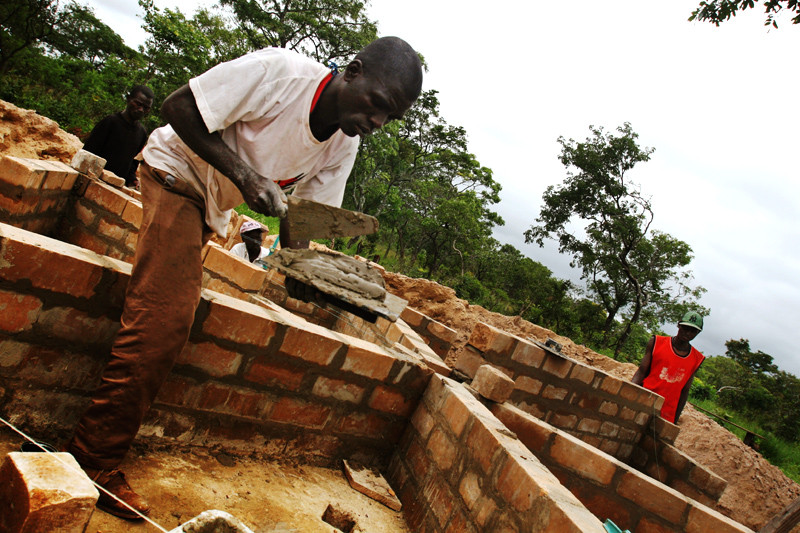Angola: Civil Society & Inclusive Governance
We support civil society to play a key role in social, economic, and democratic development in our target countries. We provide opportunities for civil society actors to develop the technical skills and mechanisms to become more effective governance and development actors.
With a special focus on vulnerable populations and young people, PIN works on empowering local communities and civil society to actively engage in democratic processes in Angola.
Our main areas of focus:
- Empowerment of Civil Society Actors: Locally-driven, adaptive approaches to support the organisational and technical development of civil society, including civil society organisations, informal civic groups and grassroots activists. In our civil society development programming, we coordinate and—wherever possible—share expertise with our Center for Human Rights and Democracy.
- Youth Civic Engagement: The One World in Schools youth civic education and media literacy programming runs contextualised content adapted for formal and non-formal educational spaces and learners of all ages.
- Inclusive Governance of Public Services: Participatory development and monitoring public services, including Social Services, Education, Water, Sanitation and Public Health.
Past aid programmes
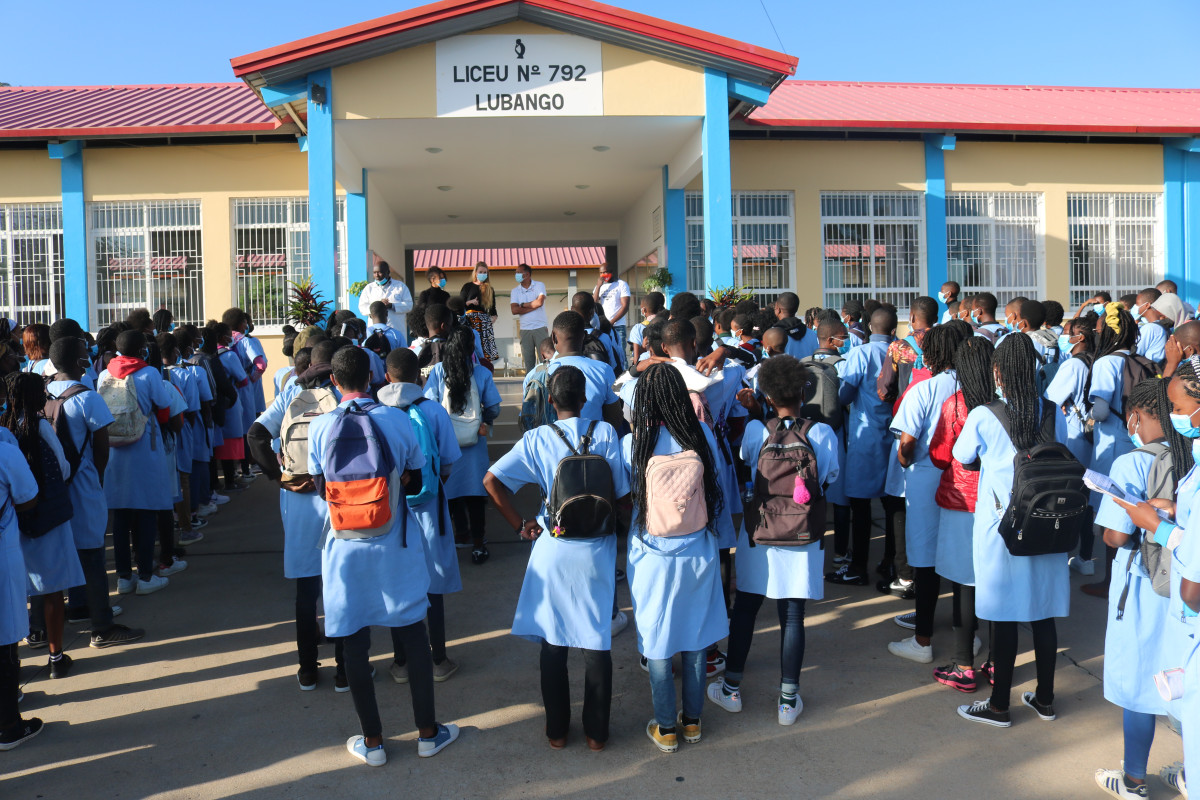
Let´s build a School in Africa - One World in Schools
In addition to educating and empowering youth, OWIS offers added value by strengthening the skills of teachers who can also use them in their regular classes outside OWIS, thus helping the quality and accessibility of education in partner schools. Outside the classroom, OWIS can be used as a non-formal education tool by local organizations or youth groups. It comes to support the Angolan education system and, as a consequence, facilitate the teaching and learning process.

Partnership Investment Fund – Stronger together
The role of national CSOs is indispensable, as they are undoubtedly often those with more experience in the field and with deep knowledge of grassroots problems in respective provinces.
The common goal is to build up a strong and reliable partnership for future call for proposals and for future programming in key sectors (Resilience, Good Governance, Public Health). As a result, the current partners improve their organizational skills (such as project design, planning, MEAL, finance, logistics, HR, and procurement). This will be done through joint workshops, trainings, experience sharing for current key partner (AJOMA) and implementing its activities in relevant geographical areas (i.e., in provinces of current PIN Angola presence).
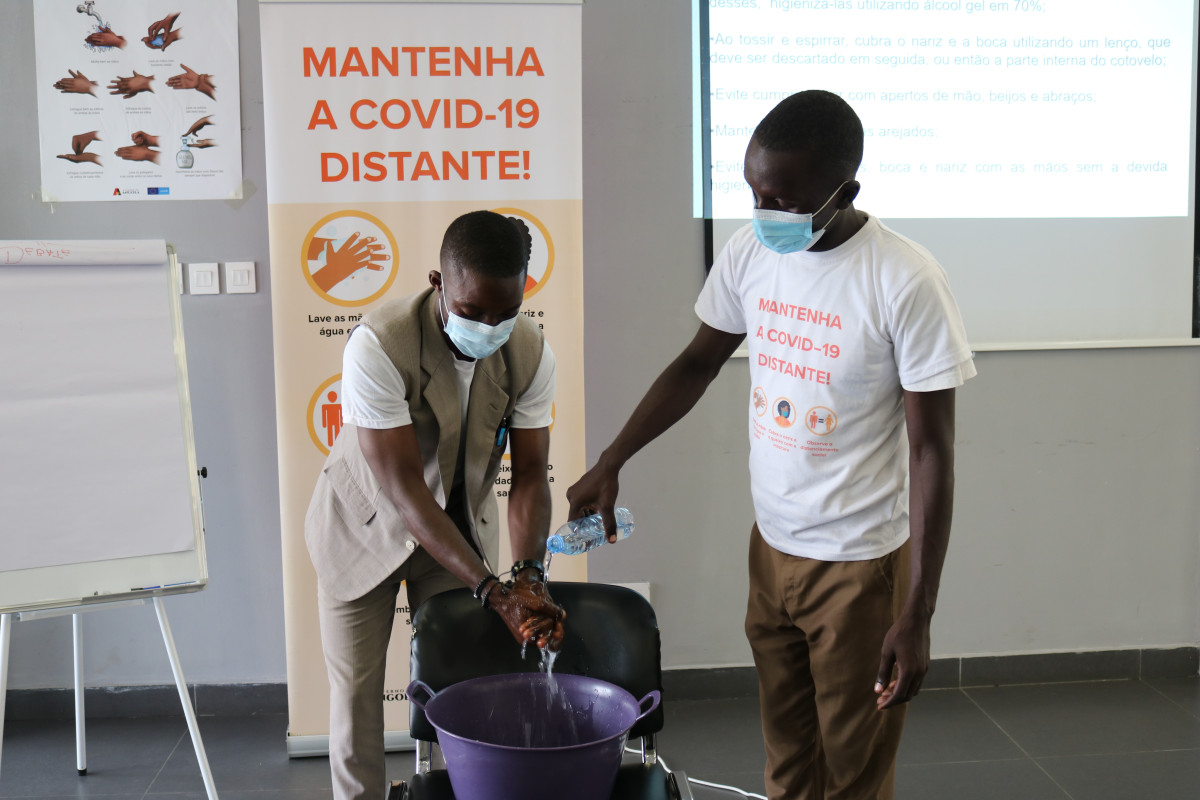
Keep COVID-19 away: Community-Based COVID-19 response in Luanda: strengthening the COVID-19 preparedness, response and resilience of selected communities in urban and peri-urban areas of Luanda
Therefore, the intervention in Luanda Province aims to increase access to information on COVID-19 prevention, good hygiene and nutrition practices and access to MNCH services for the most vulnerable communities in the municipalities of Belas, Cazenga, Maianga, Sambizanga and Talatona. Community engagement is the key not only to spread credible information and fight rumors, but also for strengthening the connections between people living in the target communities and the health services, so that people can easily adhere to the protective measures.
PIN implements the action through a series of risk communication and community engagement activities in target institutions as well as through a community-led public awareness raising campaign using various communication channels including radio programs, theatre plays, community speakers and mobile messages. The project also enhances the sensitization on key nutritional aspects during COVID-19 and access to MNCH services in pandemic context through information disseminated by local influencers and the media.
The intervention is in line with the 2020 WHO Global Strategic Humanitarian Response Plan on COVID-19 by aiming to contain the spread of the COVID-19 pandemic. It contributes to achievement of overall objective of the Angolan National Contingency Plan for the Control of the Coronavirus Pandemic (Plano Nacional de Contingência Para o Controlo da Epidemia por Coronavírus) which aims to reduce the risk of coronavirus in Angola and its negative impact on the health of the population and the socio-economic sphere.

Mitigating the impact of Covid-19 on women and girls
Following the first confirmed cases of Covid-19 in March 2020, the Ministry of Health of Angola declared a state of emergency, resulting in a nation-wide lockdown. Even though measures limiting people’s movement and social interaction have proven effective in containing the spread of Covid-19, they also have an enormous economic and social impact, especially on the most vulnerable segments of the Angolan society, and particularly on women and girls. Women are often involved in informal work, hold insecure jobs, and generally earn and save less money than men. More than 70% of Angolan women have a job in the informal economy, with the lockdown severely impacting women who earn their living as street vendors or market sellers. Because of this, women are most likely to lose their income and be exposed to increasing poverty. Moreover, women have generally lower access to reliable health information compared to men (only 6 out of 10 women in Angola are literate), which can, in the context of a pandemic, represent a matter of life and death. Also, economic and social distress coupled with social isolation and restrictions on movement exponentially increase Gender-Based Violence (GBV). Finally, school closures associated with the pandemic can also lead to girls dropping out and not returning to school, even after the crisis is over.
As a response to these conditions, PIN is implementing a project comprising three parts. As an immediate measure to combat Covid-19, we focus on women’s access to health information. Using our mHealth platform to send life-saving voice messages to women and mobilizing our existing networks of Community Health Workers (CHWs) and Traditional Birth Attendants (TBAs), PIN will spread information on good hygiene practices, essential health services and other key messages for COVID-19 prevention and diagnosis. To protect women’s livelihoods, we will train 40 women in safer work practices, business management skills and alternative income-generating activities, such as hand-making of face masks, soap and handwashing stations. Through our Community Livelihoods Programme, we will provide financial support in the form of sub-grants to 8 local women-led organizations, businesses and entrepreneurs. The final part of the project will aim to increase the capacities of local women groups and civil society organizations so that they are able to advocate for Covid-19 response and recovery plans that address the specific impact of the pandemic on women. The intervention will concentrate on urban and peri-urban areas of the Huíla and Bié provinces where the risk of COVID-19 is much higher than in rural settings.
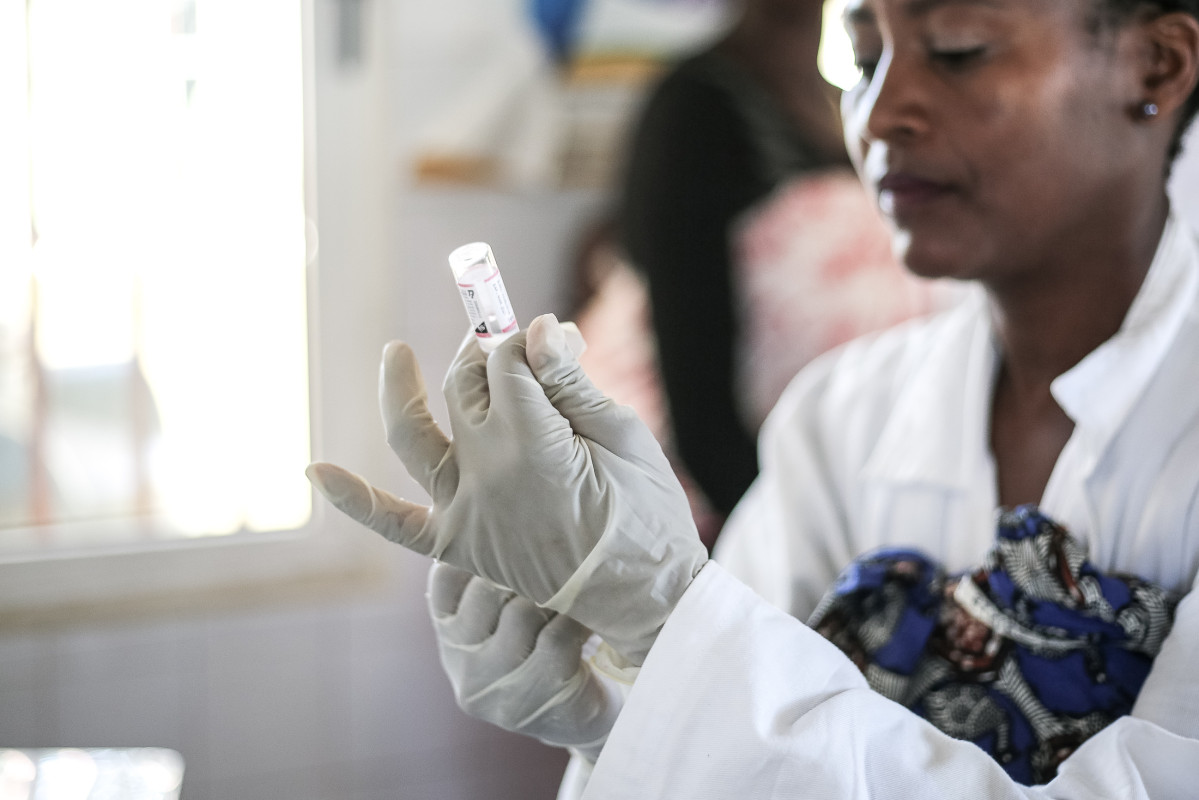
Born Free to Shine: Fighting Mother-to-Child HIV transmission
Angola has a generalized HIV epidemic with an estimated prevalence of 2%. However, not everyone is affected in the same way. The prevalence of HIV is higher in urban environments (such as Luanda, home to almost 30% of Angolan population) and in southern and eastern provinces (such as Cunene and Moxico) that border countries with higher prevalences. Moreover, women are twice as likely to be infected with HIV than men. It is estimated that less than 50% of people living with HIV know their HIV status, mainly due to poor quality of care, stigma, and discrimination.
The lack of access to HIV/AIDS-related health information and services (such as prenatal testing and consultations), faced by a significant portion of pregnant women living with HIV, are among the main reasons for HIV transmission in Angola. With an estimated Mother-to-Child HIV transmission rate of 26%, prevention of such transmissions is a priority to ensure an HIV/AIDS-free generation.
Born Free to Shine (Nascer Livre para Brilhar) project uses PIN’s mHealth mobile voice-messaging platform to support Angola's Operational Plan to reduce the Mother-to-Child transmission of HIV in Angola. Among the strengths of the platform is the use of Interactive Voice Response (IVR) technology, which allows the barriers of illiteracy to be overcome, giving the program an advantage over SMS-based services and other similar technologies. In addition, the voice messages are created taking into account the context, cultural aspects, and national languages of the regions covered. With the technological support of UNITEL and in collaboration with local authorities and the campaign led by the First Lady of Angola, PIN will design a new package of voice messages on the prevention of Mother-to-Child HIV transmission. At least 3500 pregnant women and mothers with young children will receive voice messages from the Born Free to Shine package. In addition, at least 150 health technicians, 150 Traditional Birth Attendants and Community Health Agents, 42 provincial and municipal supervisors, and 48 representatives of CSOs active in the HIV sector will receive training in providing adequate care, counseling and monitoring to pregnant women and mothers of young children exposed to HIV.
Throughout the period 2022-2023 PIN will continue to contribute to the reduction of mother-to-child transmission of HIV in the target municipalities of Luanda, Cunene and Moxico Provinces, with the support of the mHealth Mobile Health Programme. The action will also continue to improve the capacity of health workers to provide appropriate care and counselling to mothers and children 0-24 months with particular focus on HIV-positive Mothers and Exposed Children.
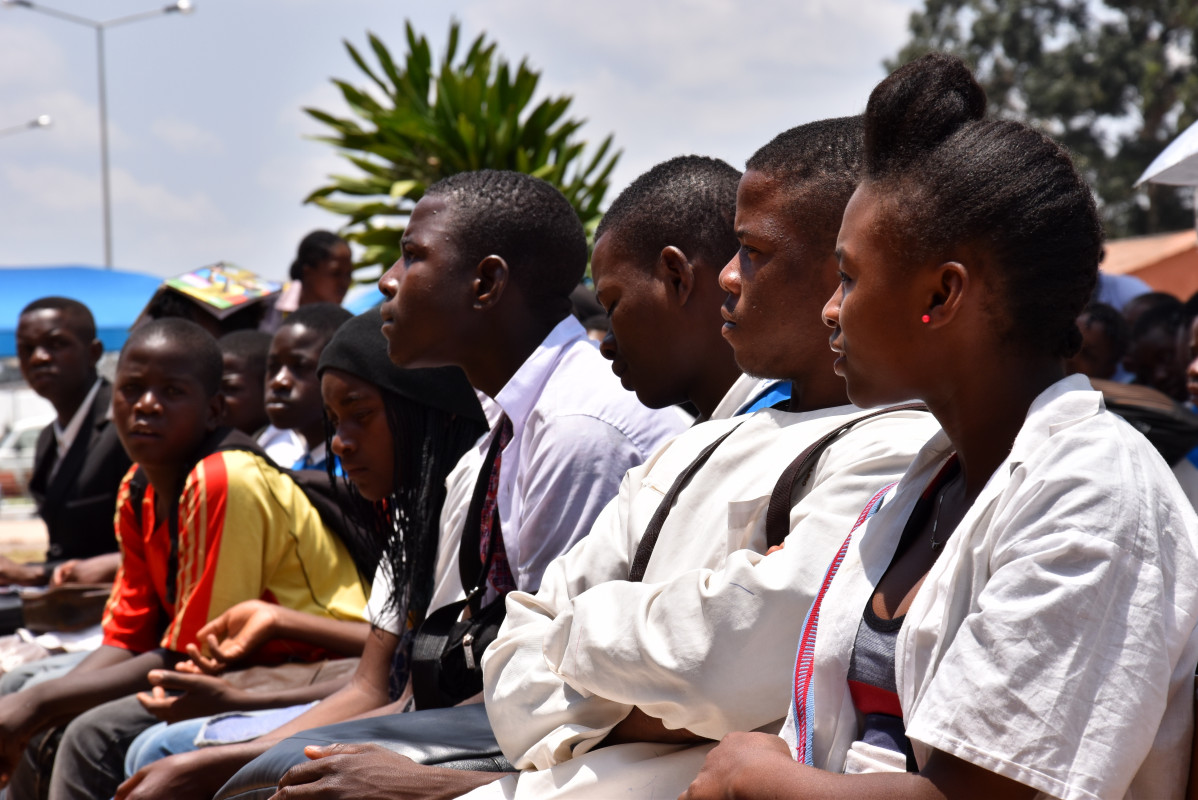
Youth4Change – Empowering Youth for a More Responsible and Prosperous Society in Angola
The project aims at improving technical, organizational and advocacy capacities of the CSOs so that they can play a greater role in the process of development and governance. Youth CSOs will be empowered to engage policy makers and effectively influence the formulation and implementation of strategies and policies affecting them the most. To this end, organisations participate in a selection process to be part of a 24-month Youth CSO Incubator Programme that includes tailor-made trainings and financial support. Selected youth CSO implement activities to raise awareness, mobilise and foster civic engagement of young people.
The project also provides trainings on public-private partnership, participatory budgeting, advocacy and participatory policy making for CSO participating in Incubator Programme, other young people, government actors and representatives of the private sector. Multi-stakeholder meetings are also organised in order to discuss youth needs and priorities.
As a complement to the mobilisation activities, the project includes an innovative approach that is being used in Africa for the first time. The programme One World in Schools, created by PIN in 2001, contributes to the education of responsible young people using films, discussions, and learning activities. It encourages young people to think critically and become engaged in issues that impact them the most, thus laying the foundation for active citizenship. The methodology also includes youth debate clubs and student elections, among other activities.

Let’s vote! Stronger voice for a better future – greater citizen involvement in municipal elections in Angola
A 12-month programme is designed to enhance the technical, organizational and advocacy capacities of CSOs to conduct public awareness-raising, voter education and mobilization campaigns for the municipal elections. Besides trainings, the programme also includes ongoing advisory support and grants to implement activities at community level.
Awareness-raising campaigns on democracy and municipal elections, including media and print communications, as well as open debates and public discussions with local authorities in election-themed jangos are conducted at the provincial and national level to complement the community-level activities.
In recognizing youth as a key target group, outreach activities targeting high school students are also a part of the project, such as mock student elections and interactive game-based modules on democracy and elections. Through these activities, students will improve their critical thinking and also have a chance to obtain small grants for student groups to implement local awareness-raising, voter education and youth mobilization campaigns.
The project is expected to directly engage with at least 2,000 high school students, 60 school teachers and members of 15 CSOs.
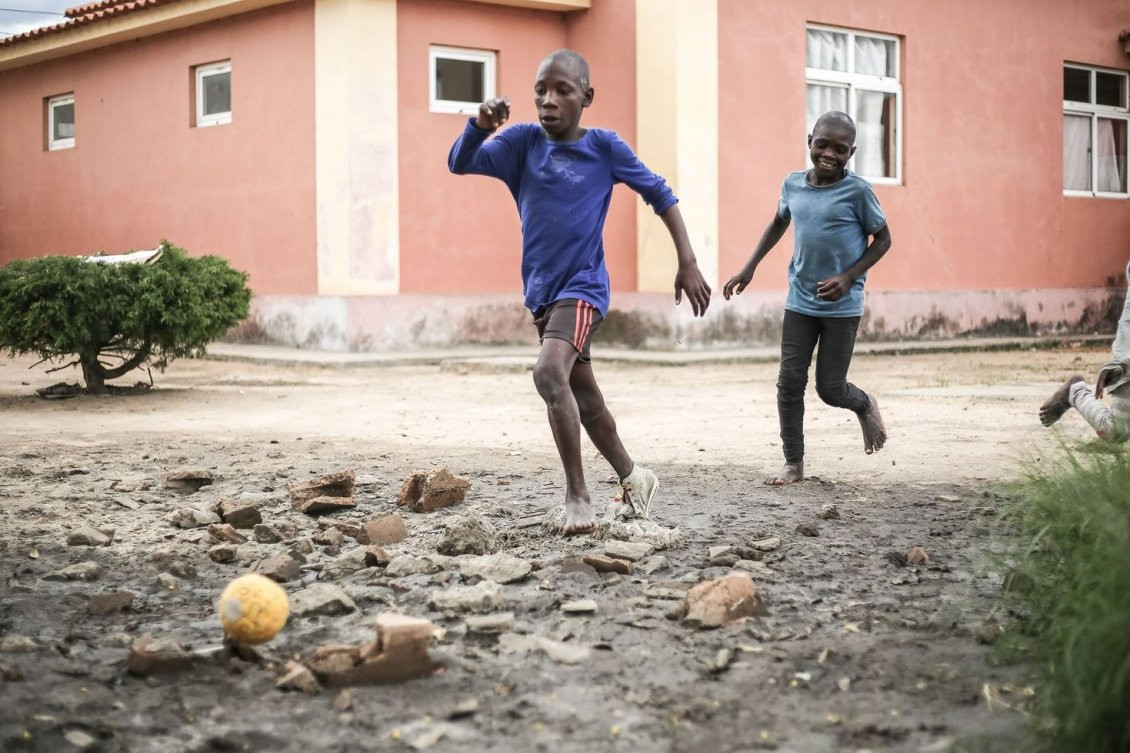
Protecting the rights of children through childbirth registration and community-based networks
In partnership with UNICEF, PIN developed the Network Angola for Children with the aim of contributing to the protection of children’s rights. Agents of Change were key to achieve the project’s goals. They are leaders in their communities, and through their work on the project, they’ve also become the local source for questions about birth registration. They work together with traditional and religious leaders, association leaders, school principals and representatives of parents’ committees, among others, to ensure that the message about birth registration and responsible fatherhood reach as many people as possible.
Health workers were also trained on key messages related to birth registration procedures and documentation, and on how to sensitize parents and caregivers to register their children. They disseminate the information in regular talks to the families in selected maternity wards and health centres, with the goal of increasing the number of children registered immediately after birth.
The project also organized theatre sessions to inform and engage families, and conducted community talks known as ‘jangos’ to share and debate important topics with caregivers. The activities developed over 9 months have reached more than 26,000 people.
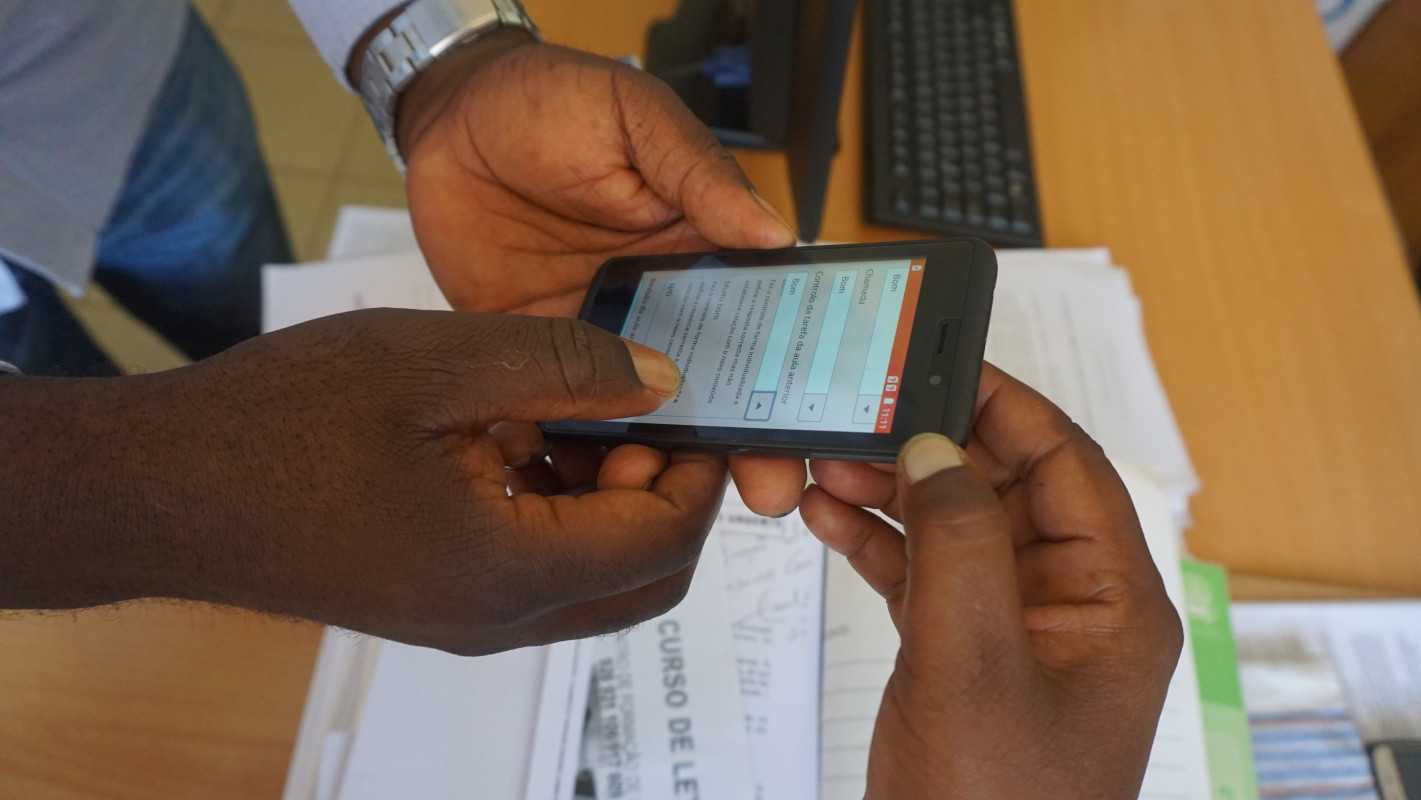
Education monitoring application
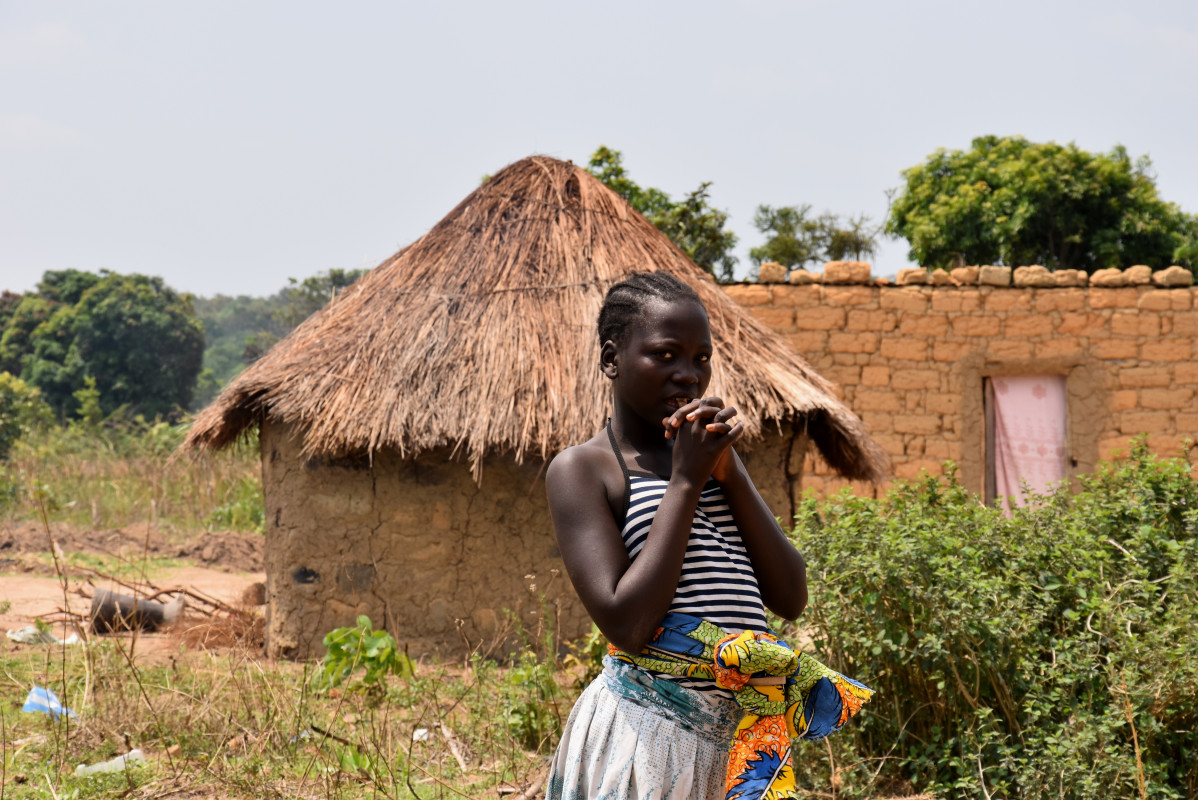
Empowering women and civil society
PIN’s programme FOCO was aimed at strengthening the capacities of civil society organizations and improving their dialogue with local authorities. Within a gender perspective, all activities also fostered gender equality and women’s empowerment.
The programme on gender and civil society was developing in Angola since 2013, when FOCO I project was first implemented in Bié province. The initiative created and implemented income-generating activities for women, in hopes of overall social and economic empowerment. As a part of the efforts of the Angolan Government in fulfilling its international commitments towards the protection of women and promotion of gender equality, the country enacted in 2011 a law on domestic violence (Law 25/11). The programme also focused on fostering networks of governmental and non-governmental institutions dealing with domestic violence, on developing awareness raising activities amongst women, young students and men, and on promotion and dissemination of the Law 25/11.
The efforts to promote gender equality continued as FOCO II, in Bié and Huíla provinces. The initiative supported the Social Protection Network for Victims of Domestic Violence of Bié and also intended to improve the response of the Children’s Network of Huíla in specific cases of domestic violence.
The empowerment of young women was the main goal of the follow-up project FOCO III, which was also implemented in both provinces (Bié and Huíla) and aimed to develop the technical capacity of two youth female-only associations, apart from promoting female leadership. The activities directly reached more than 2 800 young women and over 100 civil society organizations.
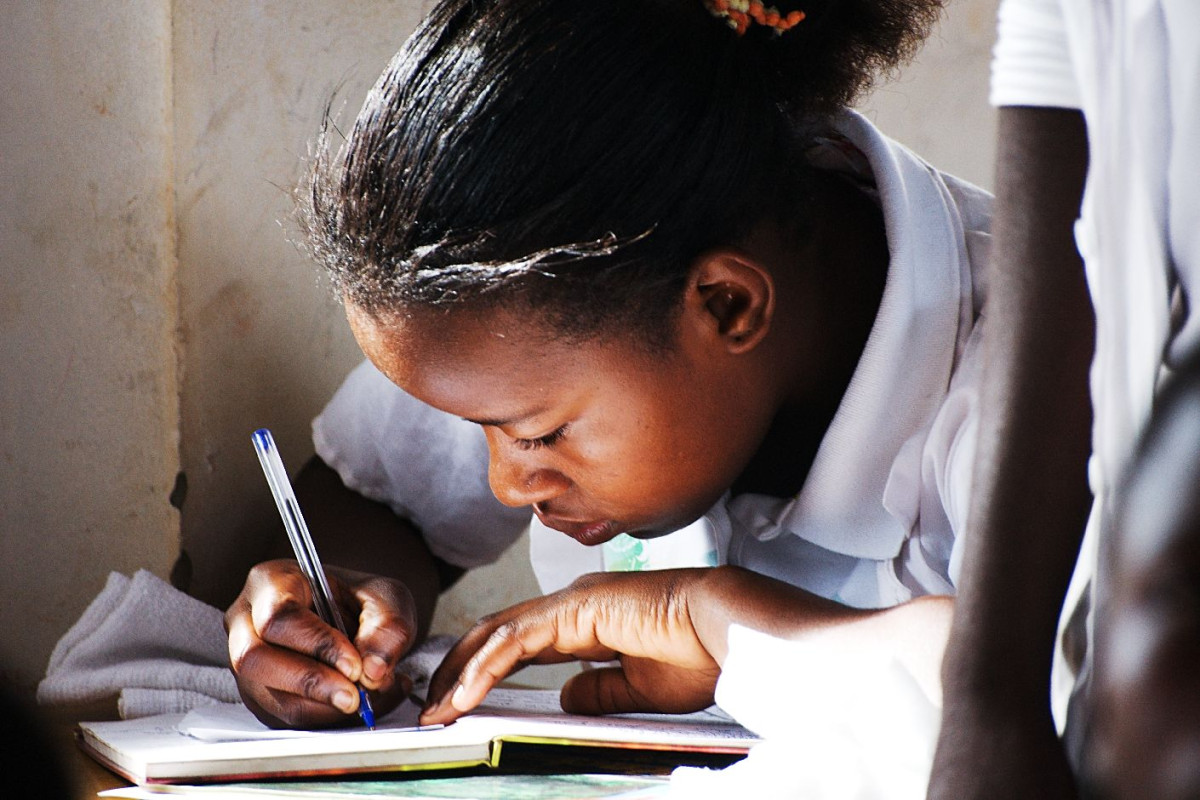
Supporting the community initiatives in combating Gender based violence and enhancing the economic status of women
Economic dependency and the lack of knowledge of basic rights and freedoms are among the main causes of high levels of violence towards women in Angola, where civil war often leaves more women dependent on men. As a result, we focus on raising awareness about domestic violence, violence against women in general, and on legislation and services available for victims and vulnerable women.
We support local community initiatives, mostly women’s groups, to disseminate basic information on the issue, provide them essential assistance and refer them to relevant institutions. We also work with the local police, judges, medical personnel, the local Directorate for Women and Family Matters, and other organizations or groups that deal with the issue. They receive training and we link them to a social protection network that helps to manage individual cases in a consolidated and efficient process.
Additionally, we train local initiatives on how to carry out income generation projects whose aim is to increase the economic self-sufficiency for vulnerable women. The best from these groups then receive a financial grant to implement their smaller projects, allowing vulnerable women to establish and manage their own small business (canteen, shop etc.).
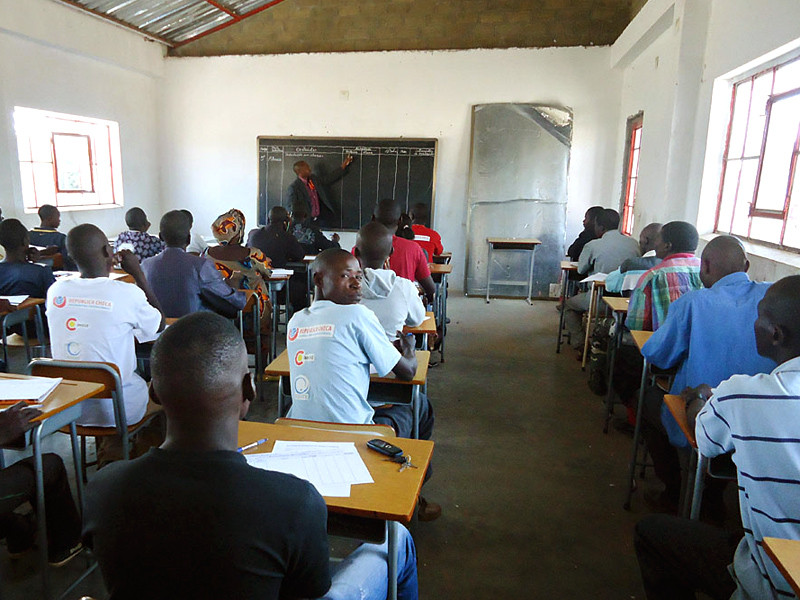
Improving management and pedagogical capacity of education sector
People in Need takes part in the management of the educational sector in two Angolan provinces through the project JOGA (Join the Organizational Goals and Activities of Education). The work builds on the assumption that the quality of teaching provided at the primary schools in Bié and Huambo provinces can be enhanced by improving the quality of education management. Planning, coordination, monitoring and supervision in different levels of the educational management units are crucial measures for the system. PIN hence focuses on supporting directions in the organization of education activities.
The current project also aims at raising awareness about the function of the Pedagogical Zones of Influence (ZIPs, Zonas de Influência Pedagógica) and at enhancing their implementation as an important part of the government educational reform. The ZIPs are clusters of schools that are linked together and cooperate by sharing knowledge and methods in order to improve the quality of education.
In the previous projects, PIN has developed a set of different planning and supervisory tools as well as manuals for ZIPs implementation. The relevant staff of educational management units is trained in using these instruments – the aim is that they can be later used by the staff independently on a regular basis in order to help them in their work.
Regular ZIPs meetings are also an opportunity for teachers’ training on problematic issues, such as student continuous evaluation and teaching methods. Considering that primary schools do not have any specific budget to cover the purchase of didactic materials or other teaching aid, it is of utmost importance to build resilience and “can-do” attitude within teachers. Therefore, can-do clubs are promoted as public spaces where pedagogical students can meet, share ideas on good practices and create teaching aid tools using locally available materials.
In total, about 500 primary schools must be benefited from the improvement of management capacities in provincial and municipal directions, the enhancement of teachers’ abilities and its frequency in classes – as a result of a commitment with can-do clubs activities and inspectors’ monitoring – and also from a better environment in schools – as a consequence of ZIPs implementation.
